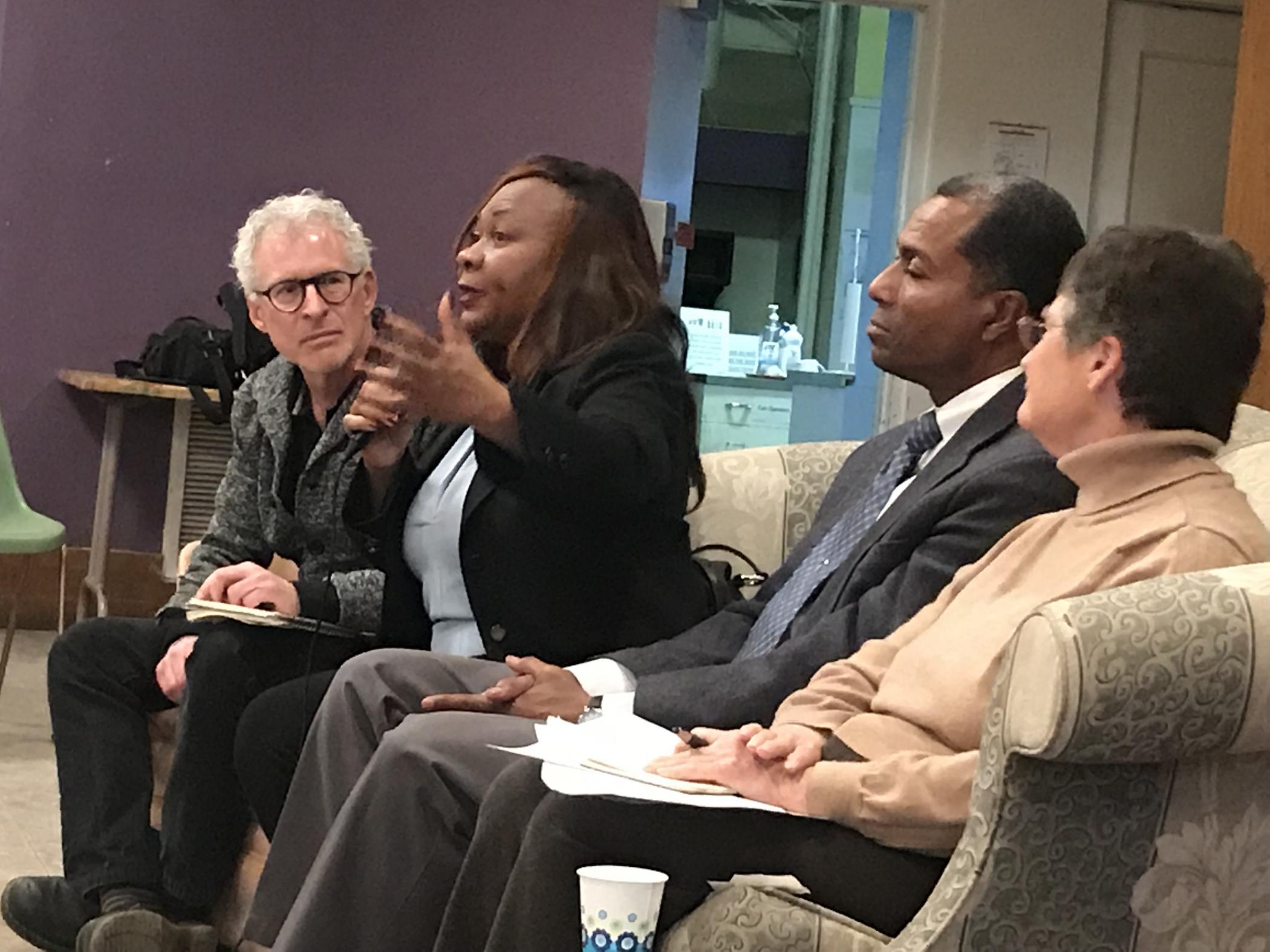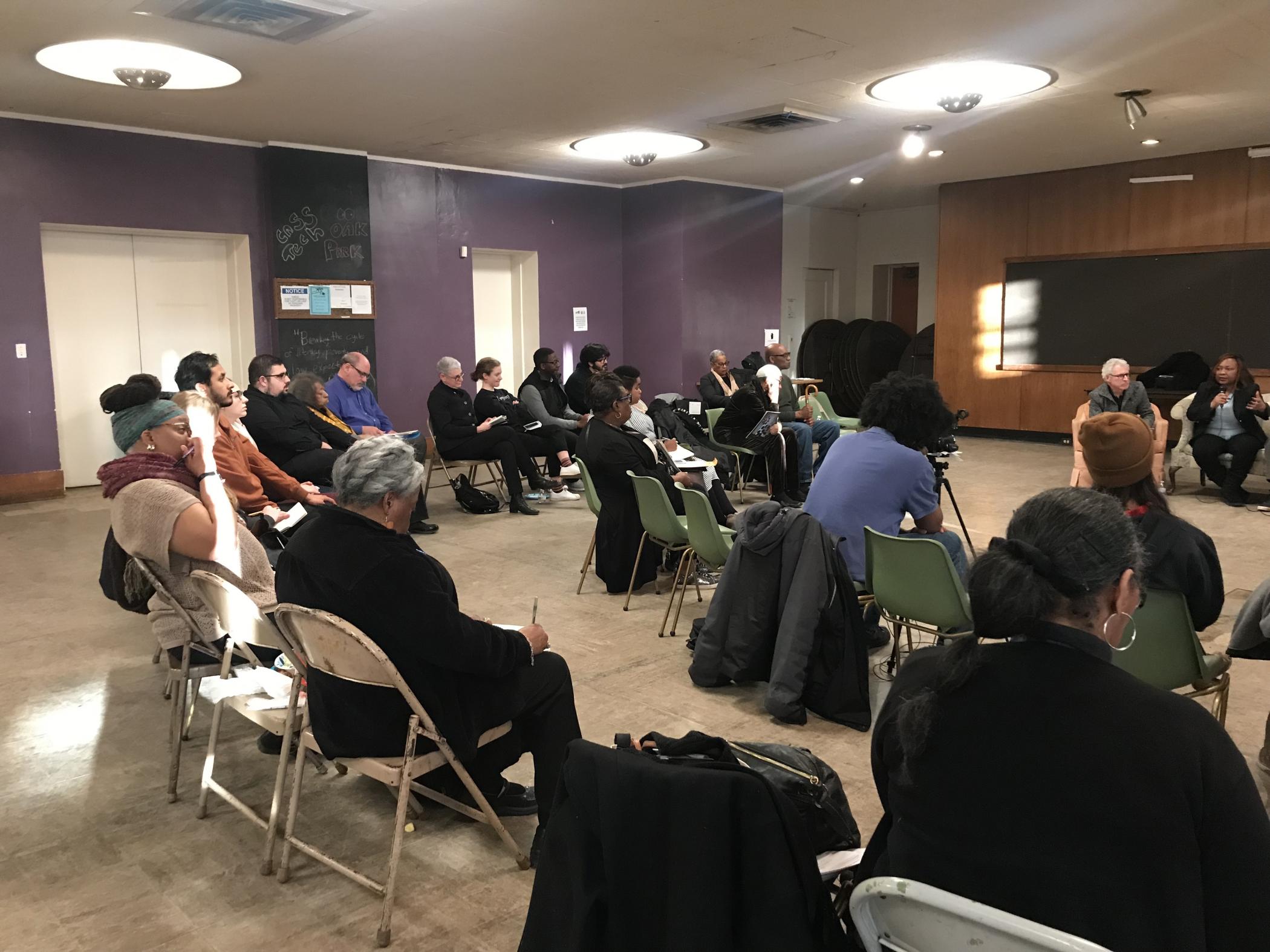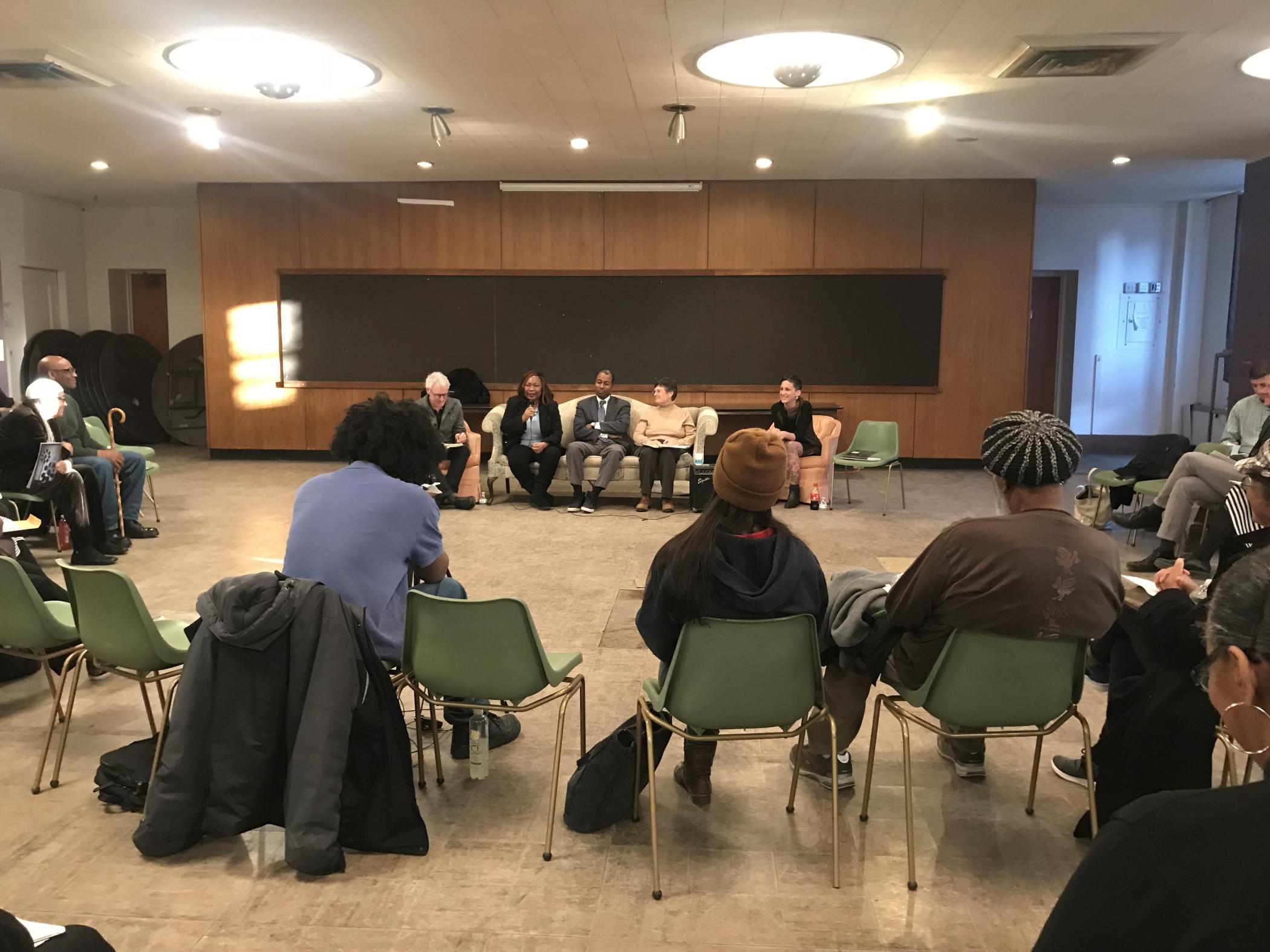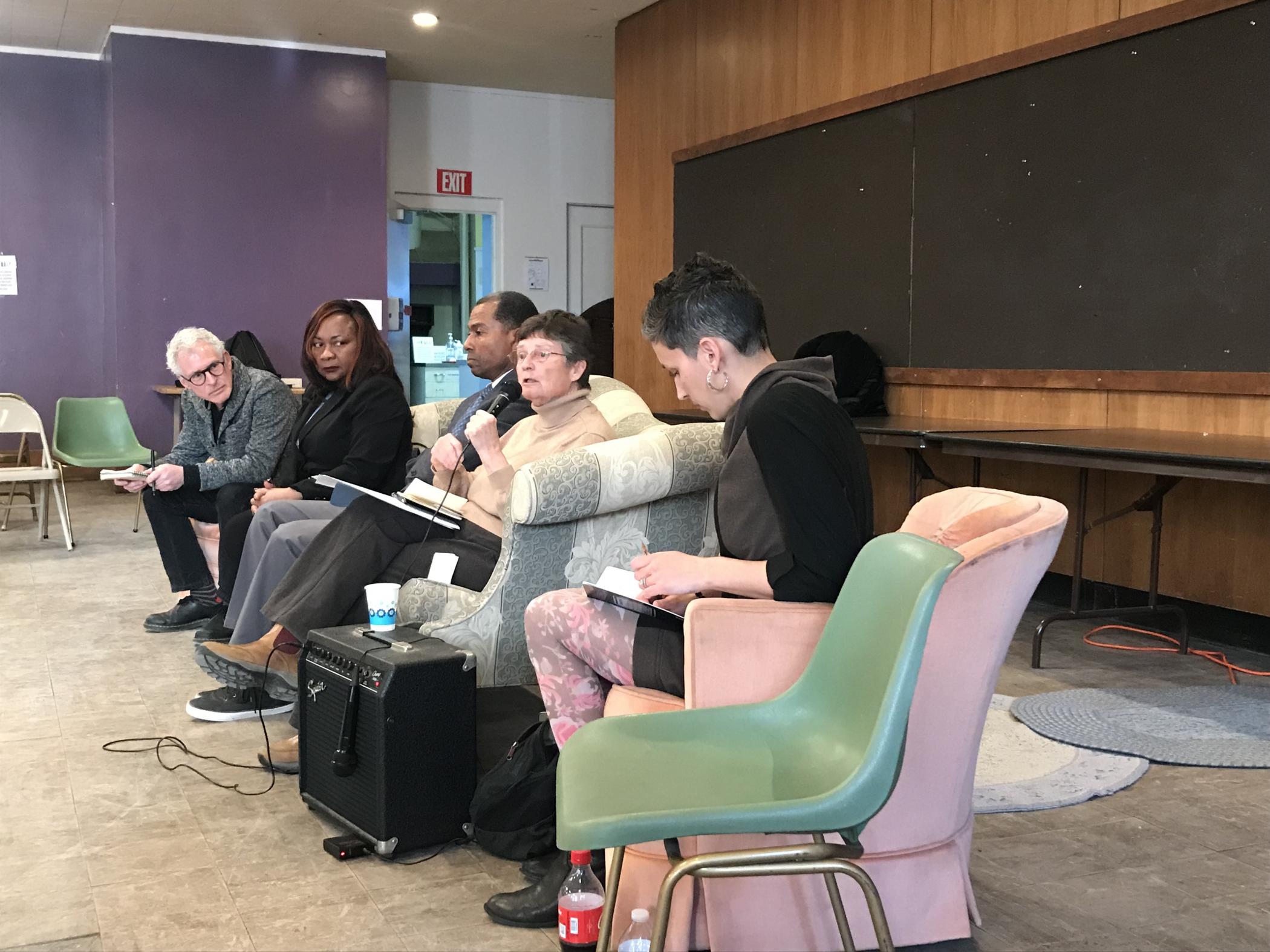
A public discussion co-organized by the Taubman College of Architecture and Urban Planning at the University of Michigan, Louise Seamster at the University of Tennessee, Knoxville, and the Temple Hoyne Buell Center for the Study of American Architecture at Columbia University
March 22, 2018
Cass Commons, Detroit
Since the 1980s, the state of Michigan has been the national epicenter of the development of municipal “emergency management”—a project that allows state governors to declare “financial emergencies” in Michigan cities and thereby replace democratically-elected city officials with appointed emergency financial managers. In the three decades that emergency financial management has unfolded in Michigan, its cities have seen the large-scale sell-off of public assets, the privatization of public institutions, the disinvestment in public infrastructures, the elimination of public services, the dissolution of municipal agencies, the hollowing-out of collective bargaining, and other acts of violence against the public sphere. Extending long histories of the extraction of labor, land, and wealth from communities of color in the United States, the transfer of public wealth and financialization of municipal governance under emergency management has been focused on Michigan’s black-majority cities; in the last 10 years, around 52% of Michigan’s African-American residents have been disenfranchised by emergency management as compared to 3% of white Michiganders.
On December 14, 2017, the office of Michigan Governor Rick Snyder announced that there were, at the moment, no emergency managers in any of the state’s cities. That announcement prompts questions about the ongoing consequences and legacies of emergency management—a project that has become dormant rather than one that has been invalidated. What has the impact of emergency management been on Michigan’s cities? What are the lessons that should be learned from Michigan’s experience with emergency management? How can the legacies of emergency management in Michigan inform resistance in other spaces of threatened or ongoing de-democratization? This panel was dedicated to the discussion of these and related questions.
Participants included:
Mark Fancher, Racial Justice Project, ACLU of Michigan
Catherine Coleman Flowers, Alabama Center for Rural Enterprise
Shea Howell, The James and Grace Lee Boggs Center
Louise Seamster, University of Tennessee Knoxville
Moderated by Andrew Herscher, The University of Michigan
On Friday, March 23rd, 2018, a related workshop convened in Ann Arbor. This conversation took up some of the issues presented on Thursday, considering Emergency Management as not only a local but also a national project, which engages with systems of infrastructure, environment, and culture at multiple scales.
Image: Overpass Light Brigade



